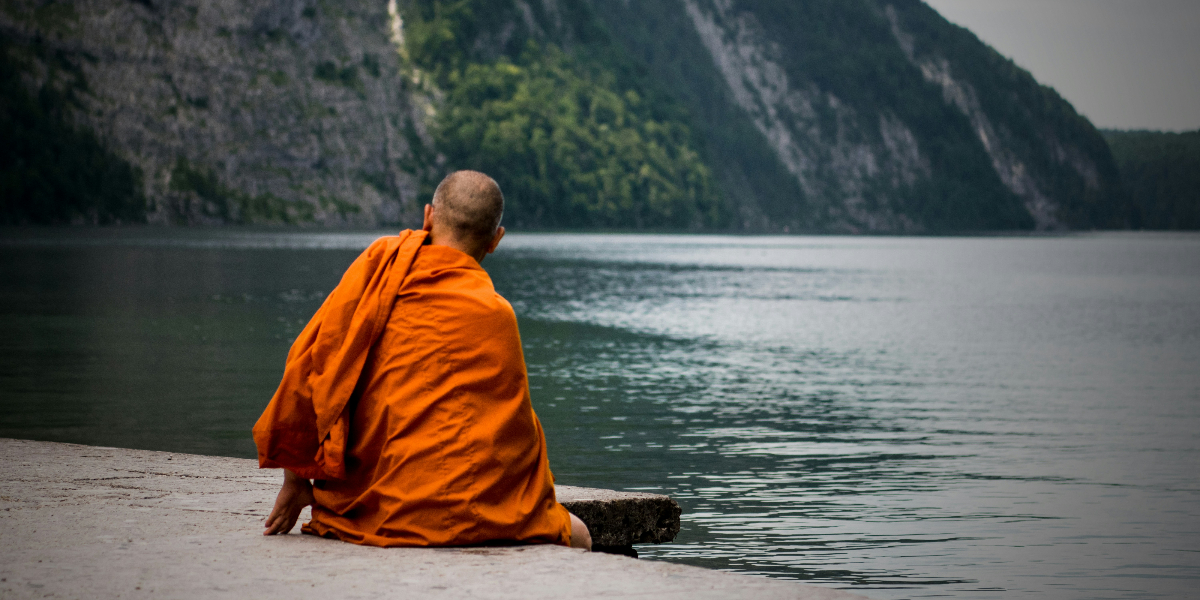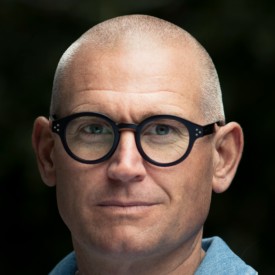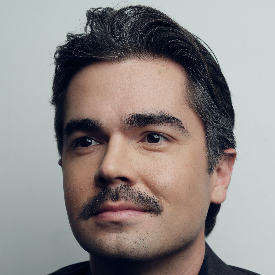Below, Ann Tashi Slater shares five key insights from her new book, Traveling in Bardo: The Art of Living in an Impermanent World.
Ann has published fiction, essays, and interviews in The New Yorker, The Paris Review, The New York Times, The Washington Post, Guernica, and Granta, among others, as well as in The Penguin Book of Modern Tibetan Essays and American Dragons (HarperCollins). Her speaking and teaching engagements include Princeton, Columbia, Oxford, The American University of Paris, The Rubin Museum of Art, and Asia Society.
What’s the big idea?
Traveling in Bardo interweaves explorations of impermanence in our everyday existence with Ann’s girlhood in America and time spent with her Tibetan family in Darjeeling. Like her great-grandfather before her, Ann spreads guidance about “bardo” between-states, or periods of life transition, to Western audiences. Change is inevitable, can come at any moment, and only by growing our acceptance of uncertainty and endings can we live more fully. Tibetan bardo teachings help us navigate and embrace life in its sorrow and joy.

1. Between-states offer great possibilities for transformation.
We experience between-states, or bardos, in every area of our lives, from friendship and marriage to children and parents to work and creativity. These periods of transition may be eagerly anticipated—a move to another city, the birth of a child—or painfully challenging—the end of a relationship, the loss of a parent. Whatever the case, they give us a chance to reset our compass and find new perspectives as we discover that the only thing we can be sure of is change.
The transformative possibilities of between-states are imprinted on our psyches from an early age. Fairy tales are all about metamorphosis: After slumbering for a hundred years, Sleeping Beauty awakens; Hansel and Gretel defeat the witch in the forest and return home; Cinderella endures the cruel treatment of her stepmother and stepsisters and becomes a princess. We also see it in the natural world: a moth emerging from a cocoon, a flower blooming after the long winter. We’re drawn to the potential for evolution that is found in between-states, but can we experience transformation as we ourselves go through times of transition? It’s possible if we’re open to it.
2. It’s not change that threatens us, but our resistance to it.
We’re wired to shy away from change, resist endings, and cling to what we know. Are you holding on to a job that has lost meaning? Or a belief system or way of living that no longer serves you? Perhaps you’re denying your parents’—or your own—aging and mortality?
My grandmother told me once about a funeral she attended in Tibet in the 1920s where the dead man wanted to reenter his body. “We couldn’t see him,” she said, “but the high lama there saw that the dead man was trying to bring the corpse again to life.” This story is a striking metaphor for our resistance to change. We struggle and grieve, deepening our suffering by trying to hold on to what is lost to us. I experienced this when my father died suddenly, and I’m going through it again now as my mother disappears into dementia.
“We struggle and grieve, deepening our suffering by trying to hold on to what is lost to us.”
There are endings we can do something about, like a job that’s no longer right for us, and ones we can’t, such as an aging parent. Regardless, only when we accept the reality of our situation can we open ourselves to the sorrow we naturally feel and move forward, instead of remaining trapped in denial. It’s our resistance to change—rather than change itself—that most threatens us, hindering the flourishing of our mind and spirit in a world where impermanence is the only certainty.
3. What we pay attention to becomes our reality.
In life, we may drift aimlessly through the months and years, immersed in thoughts and reveries. What our distracted minds perceive turns into our reality, and we have the strange feeling that we’re dwelling in a parallel universe, able to sense our real lives but not live them. We worry that something is missing, or that we’re missing out, and we wonder if we’ll ever find ease and joy. We’re like the hungry ghosts in Tibetan cosmology: skeletal beings with throats as thin as a piece of hair and stomachs as big as the Grand Canyon—“never enough drinks or eats for them,” my grandmother used to say.
The mind is like a team of horses that, given the chance, will charge off in different directions. The challenge is to take hold of the reins. As the bardo teachings tell us, the mind can be guided “like the controlling of a horse’s mouth by means of a bridle.” When conscious attention becomes our way of being in the world, we undergo a profound shift in our experience of life. Instead of feeling insatiable hungry ghost cravings, we reside more fully in each moment. As that becomes our way of being, we find the contentment that eluded us.
4. Karma is action, not fate.
We often think of karma as fate. “It was my karma to buy that house,” or, “It was my karma to not get along with my daughter.” But karma isn’t just about things happening to us beyond our control. It’s about how what we do, think, and say in each moment determines our path forward.
If our actions are positive, that’s all to the good, but if not, we make ourselves miserable through habitual behavior that is, in Buddhist terms, “unskillful,” like getting into power struggles with your child, having the same pointless arguments with your partner, or staying silent when you should speak up. We can transform what’s making us unhappy by changing our activities of body, mind, and speech. This may sound daunting, but it can be a small action, such as praising your partner rather than criticizing them, or expressing your opinion about something that’s important to you.
“We can transform what’s making us unhappy by changing our activities of body, mind, and speech.”
Our actions in this moment are influenced by our past actions and, in turn, influence our future behavior. The more we choose the positive (kindness, honesty) or, conversely, the negative (disparaging others, lying), the more likely we are to keep acting in these ways. It’s up to us whether we slog on through trials of our own making or move into an awakened way of living that brings us the happiness we seek. At each moment, we have choice. Instead of tending the same old garden, we can till the soil for a new one, planting seeds and letting them flourish.
5. We confirm our humanity by living the life that’s ours to live.
If we’re lucky enough to come into this world as a human (rather than, say, an ant or a tree), we possess the unique capacity to make the most of our lives, spurred by the knowledge—again, uniquely human—that we are mortal. Making the most of our lives in this fleeting, beautiful universe means living the life that’s ours to live.
A tulip is a tulip, a tiger is a tiger. Tulips and tigers don’t lose sight of what they are and end up being something else, like: “I ended up a daffodil when I’m really a tulip!” Or, “How did I turn into an aardvark when I’m actually a tiger?” The capacity to live inauthentically is, unfortunately, all too human. “Be yourself” sounds so simple, doesn’t it? But we care too much about what others think, and when our last day arrives, we wonder why we cared so much and regret that we did.
A wonderful aspect of authenticity is that it’s not about creating your essential self. Your self is like the wide blue sky, sometimes obscured by clouds but already and always existing. It becomes visible as we let go of unskillful ways of being, as we shed false personas and allow who we are to emerge. There are questions we can keep in mind that help us do this: If you found out you were going to die soon, what are some things (like others’ approval) that you would stop caring about? What would make you feel free?
Enjoy our full library of Book Bites—read by the authors!—in the Next Big Idea App:































